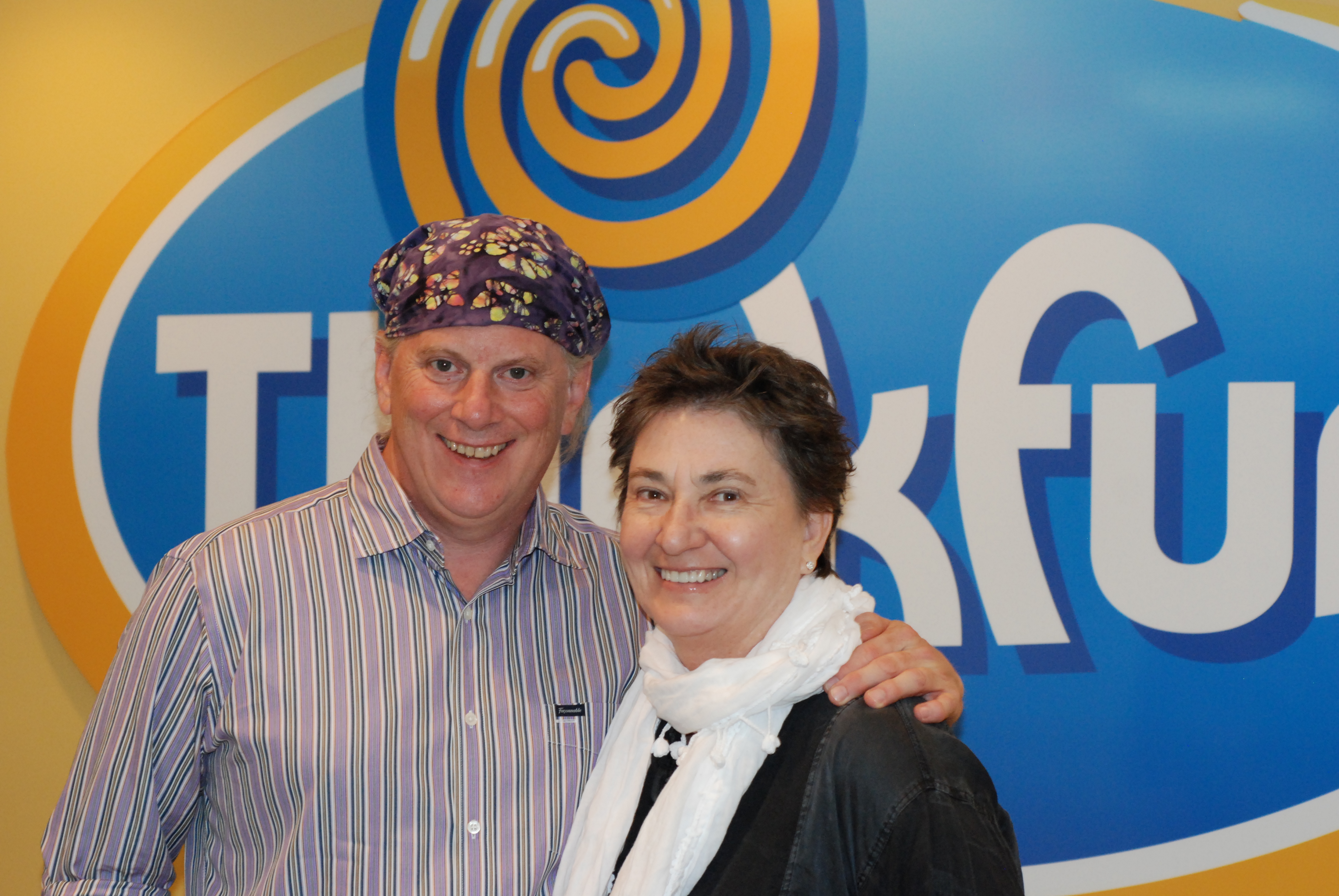Bringing Back Board Games

Recently I had the opportunity to connect with Bill Ritchie, CEO of ThinkFun, to learn more about what makes a good board game, why we should be playing more board games and how playing board games can support learning. Here’s a little of what he had to say.
Why should parent and kids get excited about playing board games?
First of all board games are fun and fantastic. That’s reason number one. But you need to make a distinction between board games that are good and ones that are not so good. So let’s start with good board games. What are they capable of doing? They provide an opportunity for people to come together – nannies, parents and kids – in social ways where the games provide a construct for people to engage around a set of rules. You can test out feelings and emotions and go through a controlled and managed experience in the context of your family and play group, providing a great socializing opportunity. Good board games are socializing influence. Playing good board games is also a way of bringing people together in appropriate way that is rewarding and fun. They are physical and tactile. They require talking and looking into each other’s eyes and laughing and empathizing with each other. Playing games provide an emotional experience, as well. These social and emotional experiences are essential. Playing good board games really provide a masterful way and structured way to become more social and to learn to process your environment.
How can parents generate excitement when it comes to playing board games?
Number one, I think parents and nannies need to choose board games that they themselves won’t become bored with when playing with the kids. Of course you don’t want the kids to become bored either. You want to choose a board game that once you get into it, it continues to provide for a fun experience. The primary thing to remember is that good board games allow parents and nannies to have an engaging social experience with the kids. The real reason to get excited is that you get to engage and interact with the kids. Playing good board games together gives you a chance to have a wonderful, enriching and memorable time with the kids. That’s something to get excited about.
What do board games offer that electronics don’t?
Tablets and electronic games have many benefits, but they tend not to be socializing influences and tend not to allow for interpersonal interactions. They provide a different kind of experience where the tablet itself becomes the center of attention and draws the child through the experience that is programmed in it. Tablet games can provide for a fascinating experience and definitely draw children into them, but by and large they are not social.
What inspired you to create ThinkFun?
Andrea Barthello, my wife and ThinkFun’s co-founder and chief operating officer, and I started ThinkFun in 1985. Our first name was Binary Arts. We had that name until 2004. We’ve been around for a long time. My dad was a Bell Labs engineer. He followed really clever and smart people who were writing for Scientific America and other journals. So when I was growing up I was aware of this community of really super smart people- engineers and those figuring out how to make the modern world work. Some of them had really cool and creative ideas for puzzles and brain teasers. When I was young I used to think that everyone in the world was exposed to this type of stuff. Then I realized many people didn’t see the logic games and toys I was exposed to.
I also realized that these type of people aren’t really involved with toy companies as they view toys as fads. I met my wife and we really weren’t happy with where we are at in life, so we decided to make a left turn and create a company where we can take really smart people and translate what they are trying to say into things that kids can understand and play with. The idea was that if we put as much effort and work into designing a play experience that is rich and rewarding, both emotionally rewarding and with real brain building benefits, we’d have something special.
We believe working the brain can be fun so we strive to make games that really challenge you and make the rewards worth playing. This is really rewarding. There aren’t many companies that care about this. If you want to be super creative you go into apps, not board games. The toy industry is really traditional. We want to put out high quality toys and games so families have a better experience. Some board game are great, some are not so great. We feel it’s our responsibility to create really good games that really catch on in the marketplace. We are blessed to be in this position and to work with inventors and to invent our own games. We put lots of effort and energy into the details to provide the best game experience we can.
What was your favorite childhood game? What’s your favorite ThinkFun game?
I loved to play Risk. I loved the crazy names of all of the locations. I love to travel. By age 21, I traveled to every state except Hawaii. Some of my desire to travel came from playing Risk. I was made aware of all these cool places around the world and wanted to see them.
What’s my favorite ThinkFun game? That’s a hard question. Today I am going to say Math Dice. It was actually invented by my older son, Sam, when he was in 6th grade. He is 27 now, so it has been around for a long time. It’s just five dice and you just play. It’s so simple and it’s so neat. My younger son, Mike, who was in 3rd grade at the time; I taught him how exponents work because I used them as a game rule. If he would want to beat me, he had to play by the rules.
For years I would carry a set of dice around with me. I’d show anyone who was interested how to play. Everyone knows the dread that comes with learning new math skills, but this is a game that makes you say “Hey! This is kind of fun.” It’s still such a surprise to me that something so simple really caught on. It’s like taking spinach and learning you can make it taste good. Math Dice is so closely associated with my kids and family, and I personally invested a whole lot into developing ideas for it so I am going to say it is my favorite.
Do you consider gender when making and marketing games?
Do we distinguish ourselves and our games through genders? By and large we don’t. With our Robot Turtles game for example, we started encouraging people to come up with adventure quests story and we asked ourselves do we want to write boy or girl themed stories. But what we’ve said and what we stick to is that our games are gender neutral but allow kids to imprint their own story on top of them to play however they want.
We also get asked fairly frequently by groups of families of children with special needs if we create games for specialized groups, like for children who are on the autism spectrum . We make our games as accessible and as true to themselves as possible. The kids will come and play and take what they can. With our games, each child will have his or her own experience and no one feels like they are being held back or not experiencing the game. You also get a different experience each time you play. We believe these things are what makes our games good.
When thinking about what games you’re going to take on, what things do you look for?
We make it really clear right up front that there are certain types of games we don’t want to look at. We consider ourselves curators, so when we see a range of games we choose games that fit our brand mission and that align with our vision.
I have this notion that games, if chosen right and done right, can help build thinking skills. To us that means you have to be able to look at one of our games and have to be able to develop a systematic way of thinking about it to be successful. There needs to be set patterns that start simple and build and lead you to a feeling of achievement. Some games are about number sense, some logical deduction, some spatial imagination and some word recognition, but they need to be challenging and fast paced.
We also look for things that are fresh and new. We encourage our team to look outside the box. For example, Robot Turtles was found on KickStarter. And Laser Maze. Who doesn’t want to bounce a laser off mirrors. You’re deeply studying and learning new things but you’re using a laser and having fun while doing it.
Another thing we look for is if a game teaches a new skill. Next year it is looking like we will put out a game to teach kids to create their own music. So that’s a new skill that can be taught through game play.
Can playing games reinforce back to school learning? How? What’s your best tips for parents on how they can use games to do this?
First of all, I think in some sense kids are being pushed too hard to grow up too fast. Everything doesn’t have to fit into a box and point towards sending a kid to Harvard. That said, I think people care about learning and I think kids care about learning too.
When you are taking about young kids, 4 to 6 year olds, the readiness a child has to have is not just an intellectual readiness, but an emotional readiness. Learning is interesting and fun when kids are emotionally ready to learn. So we need to find that zone between emotional and cognitive readiness to show kids how learning can be fun.
I also like to think about executive function. A good board game reinforces executive function. Robot Turtles, for example, is teaching coding skills to young kids, but in some ways learning coding skills for a preschooler is the same as building executive function. To play you have to focus yourself to understand goal and then break in into a series of steps to achieve it. You have to stay on task and look at the big picture and the details and then recalibrate when necessary. You have to focus on understanding the goal and being on task and moving between the big picture and small steps. These are huge skills that help with school success.
← 10 Tips for Working with Morningside Nannies | 10 Healthy Snack Ideas for On the Go →
Comments are closed.



